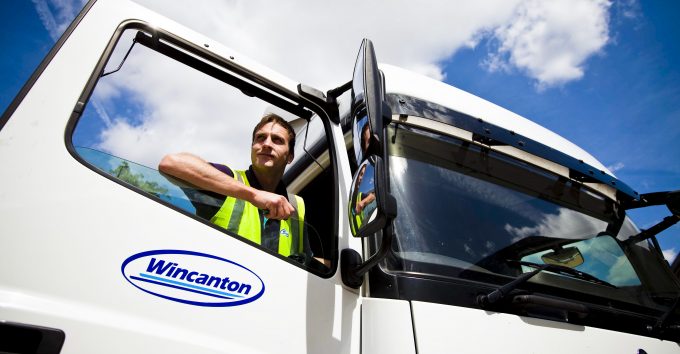US mega-airlines grow cargo volumes, but miss out on ecommerce boom
The three US mega-airlines – Delta, United and American – expanded their cargo traffic in ...
TFII: SOLID AS USUALMAERSK: WEAKENINGF: FALLING OFF A CLIFFAAPL: 'BOTTLENECK IN MAINLAND CHINA'AAPL: CHINA TRENDSDHL: GROWTH CAPEXR: ANOTHER SOLID DELIVERYMFT: HERE COMES THE FALLDSV: LOOK AT SCHENKER PERFORMANCEUPS: A WAVE OF DOWNGRADES DSV: BARGAIN BINKNX: EARNINGS OUTODFL: RISING AND FALLING AND THEN RISING
TFII: SOLID AS USUALMAERSK: WEAKENINGF: FALLING OFF A CLIFFAAPL: 'BOTTLENECK IN MAINLAND CHINA'AAPL: CHINA TRENDSDHL: GROWTH CAPEXR: ANOTHER SOLID DELIVERYMFT: HERE COMES THE FALLDSV: LOOK AT SCHENKER PERFORMANCEUPS: A WAVE OF DOWNGRADES DSV: BARGAIN BINKNX: EARNINGS OUTODFL: RISING AND FALLING AND THEN RISING

Wincanton, slowly recovering from the loss of HMRC business and the March cratering of its share price, is refocusing on externalising costs through “Open Book” pricing.
The announcement that HMRC would not be renewing its contract for inland customs facilities sent Wincanton shares tumbling from March highs of £309 per share to as low as £192 in the same month. Total consolidated income demonstrated a major drop to £15.2m in FY2023, versus £80.7m in the year before, battling tapering retail volumes and inflation.
However, marginal growth in the company’s revenue base – from 1.42bn in FY2022 to 1.46bn in FY2023 – was attributable to the expansion of contracts agreed with the UK’s Department of Health & Social Care (DHSC), Department for Environment, Food and Rural Affairs (DEFRA), and BAE Systems.
Although 73.5% of its contracts are already operating under Open Book terms, Wincanton said that it will pursue a shift in strategy towards externalising its costs. The company says this will “rebalance the relative risks and opportunities.”
“From a transport perspective, the Group will focus on its 4PL offering, together with supporting open book dedicated networks.”
Under Open Book pricing structures, the contractor passes on the actually incurred costs to the contractee, rather than using a fixed “Closed Book” pricing structure which requires the company to account for its own costs. Although less convenient for customers, Open Book pricing is better-suited to an unstable cost environment, such as the current paradigm of high inflation and unpredictable macro-economic factors precipitated by the war in Ukraine.
“This refocused transport offering necessitates a move away from closed book arrangements, where we have no protection, as the risk is unduly balanced towards Wincanton’s balance sheet,” the company’s statement said.
As well, Wincanton pursued investment in automating warehouse operations.
“We continue to invest in technology as the route to deliver competitive advantage in the industry,” said Wincanton CEO James Wroath. “Significant opportunities remain for warehouse automation across our Group, both in the foundation sectors and strategic growth markets.
“Furthermore, our transport operations have had a shift in focus with technology at the heart of our new market proposition.”
Mr Wroath said that further hurdles were expected throughout FY2024, “due to the macro-economic environment”.
“Our strategy delivered a strong result in FY23 despite the prevailing macro-economic challenges, particularly with regard to retail volumes and inflation,” he said.
Comment on this article